In the second round of conversation with young scholars, we met with young researchers and activists Lee Eunjin, Lee Jaeim, and Choi Sung Yong, and asked what the issue of the “Comfort Women” in the Japanese military means to their lives, and how it motivates them. There were the questions and answers between up-and-coming researchers living in the same generation and the members of the Academic Planning Team at the Research Institute on Japanese Military Sexual Slavery (RIMSS). Now let’s meet the oral history of women in the US military base towns, the analysis of legal discourse surrounding “damage” and “victims”, and the post-colonial critique of the Japanese military “Comfort Women” movement and the relevant discourse in Korean society.
-Date: September 6, 2022
-Chairpeople: Lee Hunmi, Hwang Jin Kyung, So-jeong and Lee Aan from the Academic Planning Team at the Research Institute on Japanese Military Sexual Slavery (RIMSS)
-Interlocutors: Lee Eunjin (Center for Sexual Rights and Reproductive Justice), Lee Jaeim (Program in Gender Studies, Seoul National University) and Choi Sung Yong (International Cultural Studies, Sungkonghoe University)
-Summary: Purplay Company
Q. All of you have different majors, and some of you do not directly deal with the Japanese military “Comfort Women”. Please introduce yourselves and explain your areas of interest. And please explain how you first met with the issue of the Japanese military “Comfort Women” and began to write about it.
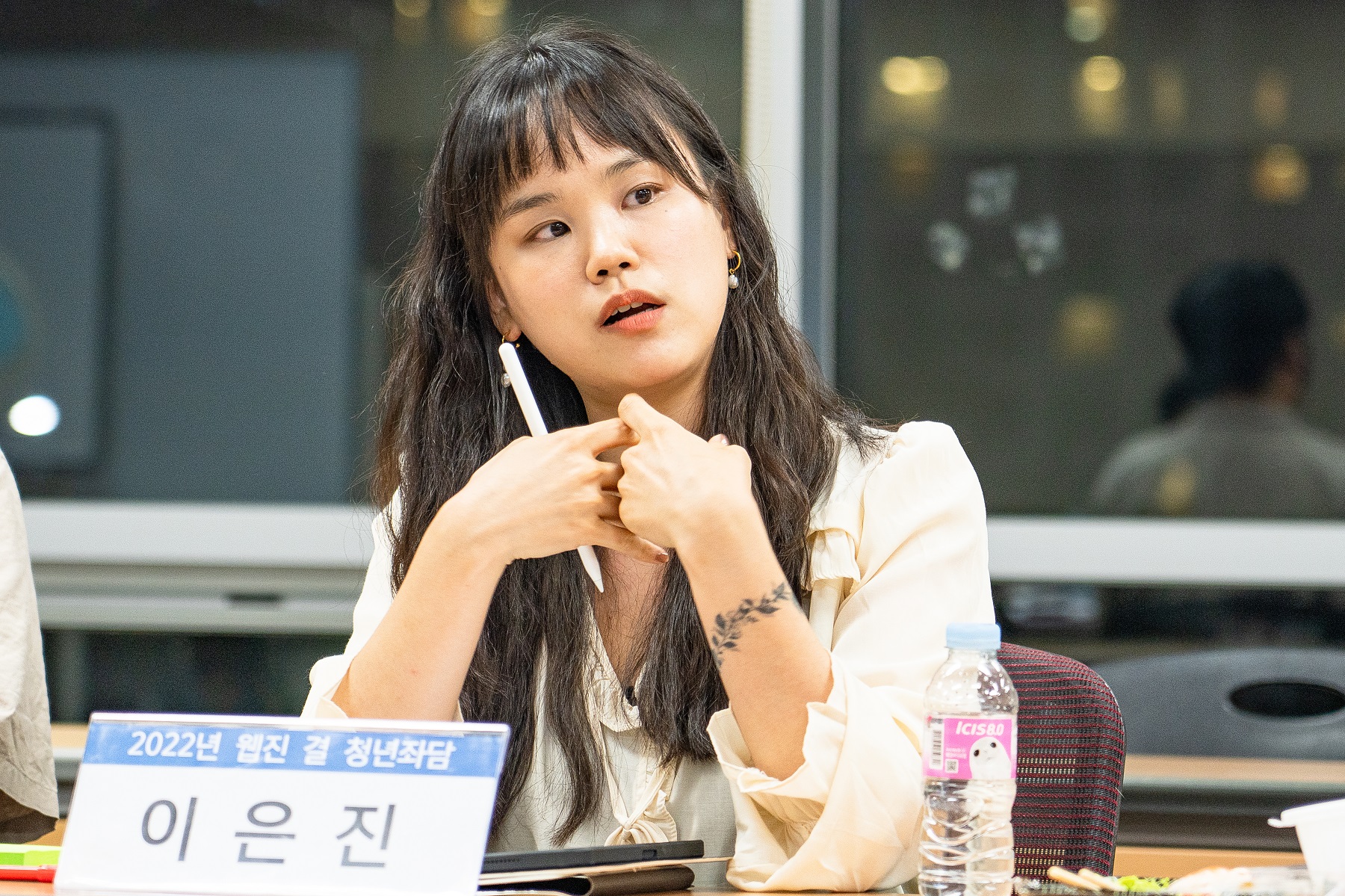
Lee Eunjin
I am currently a member of the Planning and Steering Committee of the Center for Sexual Rights and Reproductive Justice (CSRR). The CSRR takes “reproductive justice” as its main focus. This means that it examines how the power dynamics surrounding sexuality and reproduction work when it looks at the current inequality or injustice from a feminist perspective. I have been pursuing my interest in the “Comfort Women” issue since I believe it is very crucial in understanding Korean society with regard to sexuality and reproduction.
In 2014, I came across a lawsuit against the state for compensatory damages by Korean women in US military camp towns. After listening to and transcribing the stories of those women, I began to work on a collection of oral statements. In this work, the study of the testimony of the Japanese military “Comfort Women” served as an important reference. I published an oral book for women in US military camp towns while contemplating how to inherit and further develop the meaning of the then 20-year-old testimonies of the Japanese Military “Comfort Women”. It was at this time that I first came face to face with the “Comfort Women” issue, and I continue to have an interest in it to this day.
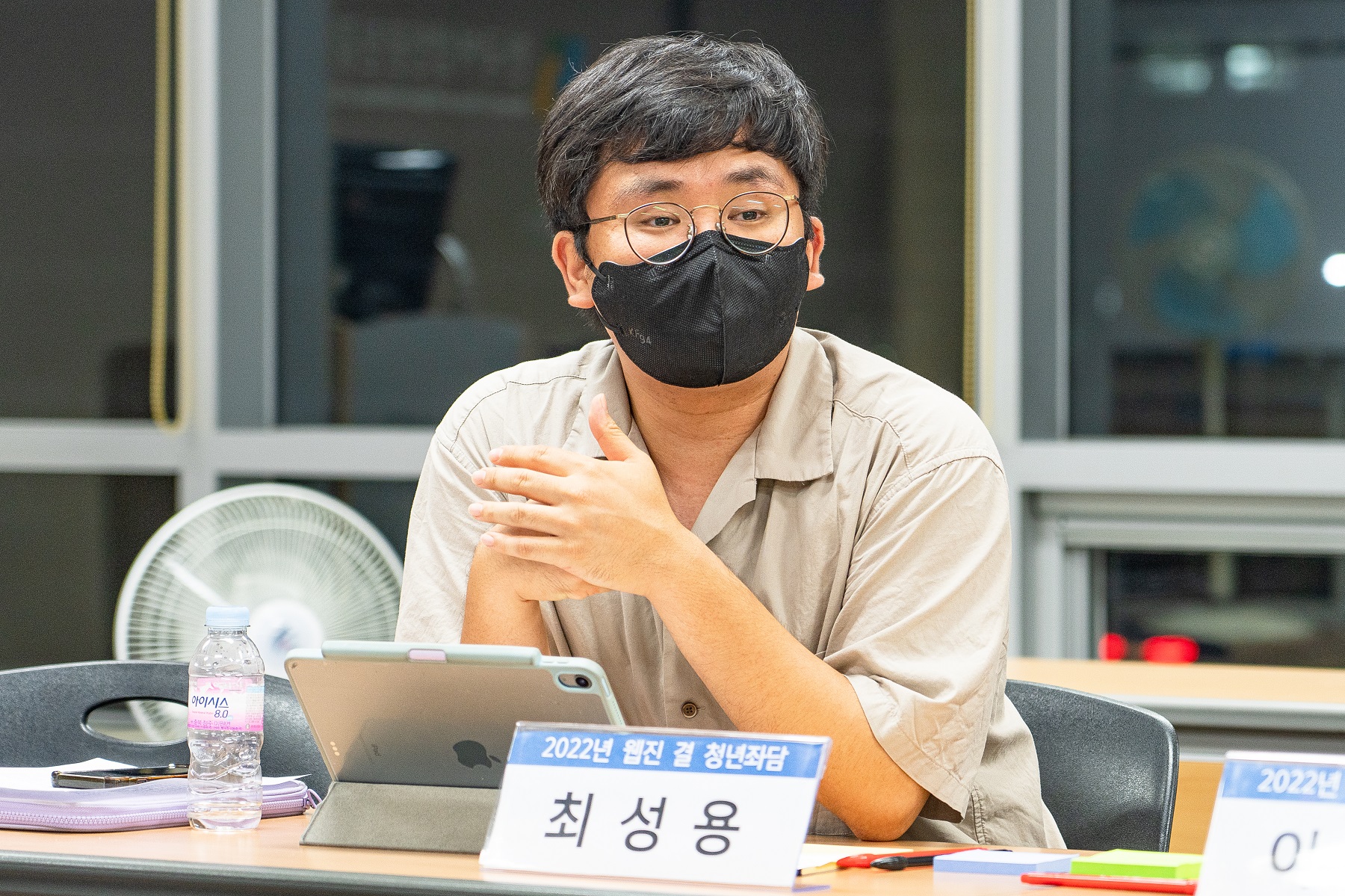
Choi Sung Yong
I am an activist and researcher, and I also write critiques and columns. The areas of my interest include youth, labor, and gender. Centered on the question of “how does violence create society?”, my doctoral dissertation is both connected to and shares differences with the issue of “Comfort Women”. The Sewol Ferry incident made me question what state (violence) is, how it has created today’s society, or what kind of mentality it has created for the people living in it. I think I started going back to the experiences of war and massacre, such as the Japanese colonial period, the Korean War, and the Jeju April 3rd Incident, and the history of state violence. The last time when I went to Okinawa for fieldwork, I met Kim Hyun-ok and Kim Soo-sup who helped Bae Bong-gi, one of the “Comfort Women” victims, I first encountered the “Comfort Women” issue in a serious light. I was influenced by meeting Lee Young-chae, Aiko Utsumi and other researchers in Japan who studied B and C class Joseon(Korean) war criminals. Then, I became interested in the issue of colonialism and the issue of the “Comfort Women” in earnest.
Regarding the “Comfort Women” issue, I wrote about the controversy over the Korean Council for Justice and Remembrance[1]. I felt strongly that a member of the National Assembly, Yoon Mi-hyang, the Korean Council for Justice and Remembrance, and the “Comfort Women” movement were still being portrayed and talked about as “women” to be objectified. I realized that a black and white narrative was being pushed, ignoring all the complexities and intricacies of the issue. Given this situation, I decided to write this article.
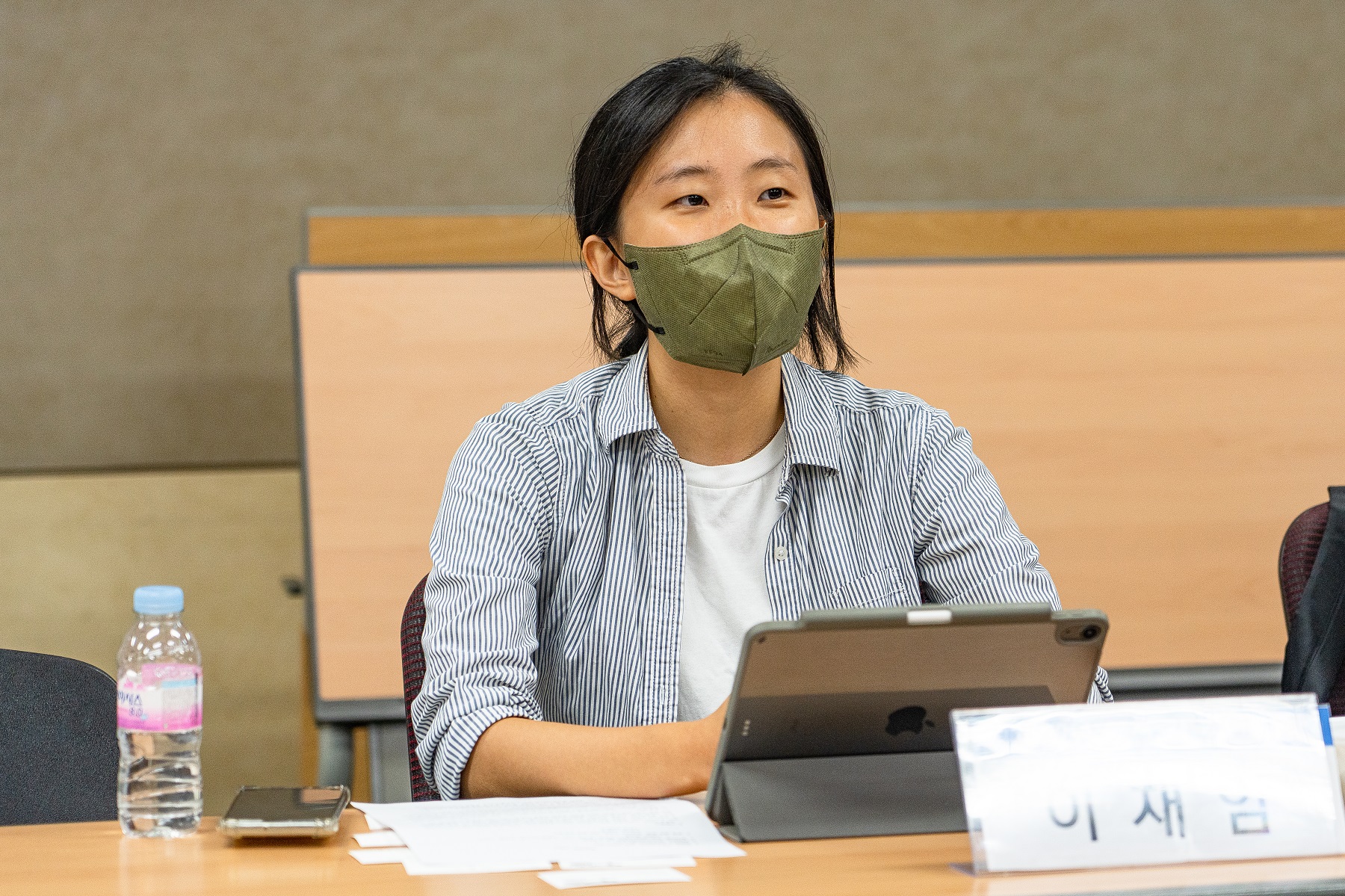
Lee Jaeim
I attained a master's in women's studies, and I'm currently pursuing a doctoral degree in the same field. My current research interest lies in the way law and society deal with violence and crime. I wrote my undergraduate thesis in 2017, and at the time, “Comfort Women of the Empire” was a pressing issue. As I was majoring in history, and indentifying myself as a feminist following the feminism reboot, I naturally decided to write a thesis on the subject of “Comfort Women of the Empire”. While contemplating on how to criticize this book, I read professor Chong Young-hwan's book and thesis on the Japanese military “Comfort Women” issue, as well as an article about the Statue of Peace. During this process, I learned about the “Comfort Women” issue and the movement. While writing my thesis, I gained a general sense of responsibility and justice, and I entered graduate school because I wanted to make “Comfort Women” the topic of my master’s research.
Q. There have been various issues related to the Japanese military “Comfort Women” movement in Korea since the 2010s, such as Professor Park Yu-ha’s “Comfort Women of the Empire” and “the controversy over the Korean Council for Justice and Remembrance” in 2020. There were also cases where the women’s movement and the Japanese military “Comfort Women” movement crossed paths through the feminist reboot and the #MeToo movement. We wonder what these issues suggest to young researchers and how they will be combined or dismantled in the process.
Lee Eunjin
I do not agree with the statement that the “Comfort Women” movement met the feminist movement in the wake of the feminist reboot and #MeToo movement. The “Comfort Women” movement was a feminist movement even before the feminist reboot. The name of the court in 2000 was “The Women's International War Crimes Tribunal 2000 for the Trial of Japanese Military Sexual Slavery”, and the victims also continued to share solidarity with the victims of wartime sexual violence in other countries. Thus, I don't think we can say that the “Comfort Women” movement is not a feminist movement. “Comfort Women of the Empire“ describes the “Comfort Women” movement as only a nationalist movement, but that is clearly not true. However, it is not a good idea to take a defensive response to the “Comfort Women” movement and say that it was a feminist movement in its own way. I think introspection is necessary now. It is time to look back at what kind of feminist movement the “Comfort Women” movement was and think about what kind of feminist movement it wants to be in the future, rather than arguing whether or not the “Comfort Women” movement was a feminist movement.
After the feminism reboot, feminism has diversified, and thus there are some internal conflicts. There is also a trend that justifies attacks on transgender people and other minorities, claiming that the feminist movement should only promote the well-being of “biological women”. Now, we need to go a step further beyond the catchphrase of the 1990s, “from nation to woman”. We need to think about what “to woman” means, what kind of feminism it should be, how we should think about gender, how it connects to other oppressions, and what role the “Comfort Women” movement should play there.
In the current feminist landscape, I think more critical discussions on the “state” are needed. Issues arise when the rights of minorities, whether women or sexual minorities, are decided by the state. As the Japanese military “Comfort Women” movement has been around for 30 years, it must definitely be institutionalized to some extent, yet more consideration is needed with regard to the relationship between social movements and the state, as well as the necessary actions and directions to take, in order to continue this movement as a radical one.
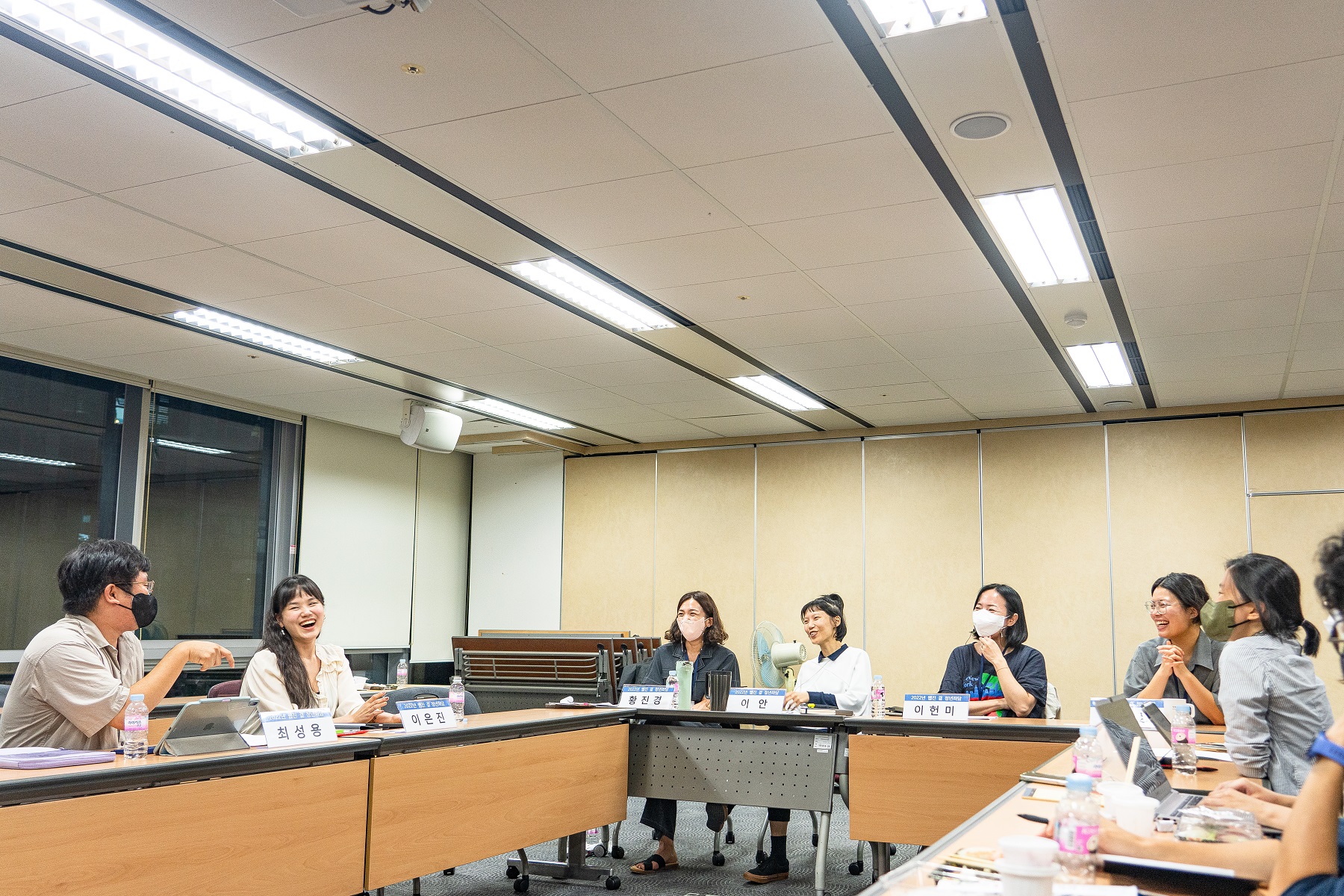
Choi Sung Yong
Criticism of nationalism and the slogan “from nation to woman” spread from the late 1990s to the 2000s, and I was and still am a part of that critical wave. Now, I think I should tell other stories rather than keep repeating old ones. A paper written by professor Cho Kyung Hee of Sungkonghoe University[2] covers a discussion about how Zainichi Korean women in Japan in the 1990s accepted and interpreted the “Comfort Women” issue. It also includes stories that revealed concerns about intersectionality in “here”. Zainichi Korean women are those who suffered the problems of colonialism that persisted in post-war Japanese society. And because they are women, they could not fully represent for themselves in the movement or discussion that spoke only one side. Professor Cho’s paper is about how the Zainichi Korean women faced the issue of the “Comfort Women” after the testimony of Kim Hak-sun, and then became aware of the position they were placed in. In the context of “here”, intersectionality plays a distinct role, and I thought that would be an example of post-colonial feminism in Korean society.
Speaking of the feminism reboot, I remember that the discussion changed from saying, “We don’t share a heritage with feminism,” to “We also share a heritage with feminism.” When women of the younger generation who became interested in feminism following the feminism reboot encountered the “Comfort Women” movement, they used the rhetoric of “the first #MeToo movement”. I assume that it was because they were trying to find genealogy in their own context and forge a history of their own. Whether it is the #MeToo movement or the “Comfort Women” movement, the victims have different yet similar patterns in terms of their courage to testify for the first time, the experiences of their testimonies being denied, and the solidarity with many people. I believe during this process, they gain courage, lessons, and comfort. Simultaneously, the “Comfort Women” movement met with the current feminist reboot, faced new questions and achieved mutual references.
Lee Jaeim
I am curious to know to what extent those who became feminists after the feminism reboot view the Japanese military “Comfort Women” movement as a feminist movement. In fact, I have noticed that their perceptions concerning the damage and the victims of the “Comfort Women” have changed over time. And that is the landscape of the feminist movement now. I think the discourse surrounding the “Comfort Women” victims can be an example that can clearly show the current state of the movement. There still exists the problematic perception that the damage is simply viewed as an individual suffering and an unfortunate event, and that taking humanitarian measures such as protection or support for the victims is enough. I wrote my master's thesis thinking that such a perception may have served as an opportunity for feminist researchers and those who became feminists to view the “Comfort Women” movement as a concern of their own.
Q. Historical documents, including testimonies, are still being (re)interpreted and discovered. We would like to hear what you as researchers thought about in the process of collecting and interpreting these documents.
Lee Eunjin
I consciously refrained from using the word “testimony” when I was working on oral statements of women in the Pyeongtaek US military base town. I meant not to view the words in the statements as objective evidence, and not to think of them as worth listening to because they have historical significance. The 4th volume of the testimonies of Japanese military “Comfort Women” victims (2000) was considered a turning point in that the words of the victims were not treated with any informational value of facts so that those testimonies could carry strength enough to change and reconstruct the cognitive system of the public. As a result, a work was accomplished to relocate and deliver the victims’ words. Taking it a step further, when I worked on oral statements of the women in US military camp town, I carried out a work that was completely separated from dealing with facts themselves.
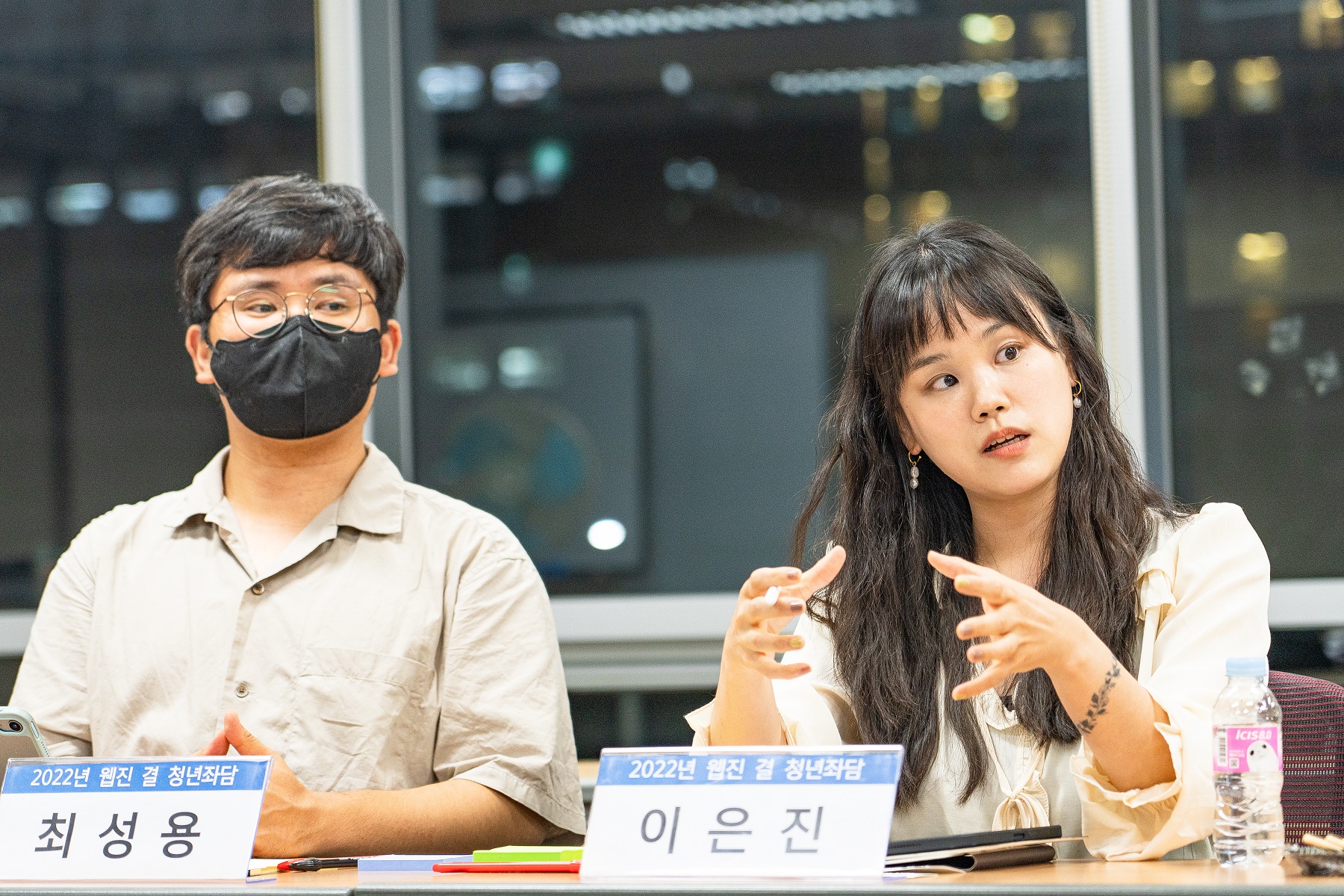
I included the contradictory statements from victims in “Beyond Victims of State Violence: Yanggongju Youngmi, Jinie and Yunseon, Daughters of the Nation” (Lee Kyungbin, Lee Eunjin, Chun Minju, Booksea, 2020). I thought that to reveal the truth is not the victims’ but the researchers’ responsibility and task. I wanted to give the victims a space where they could speak inaccurately and incorrectly. So, I focused on describing various situations and the atmosphere where the conversation took place. And I weighed more on the researcher's position and ethics. I did not edit out the words of those women. By publishing all the words spoken, I focused on getting the readers to question their listening attitude over and over again.
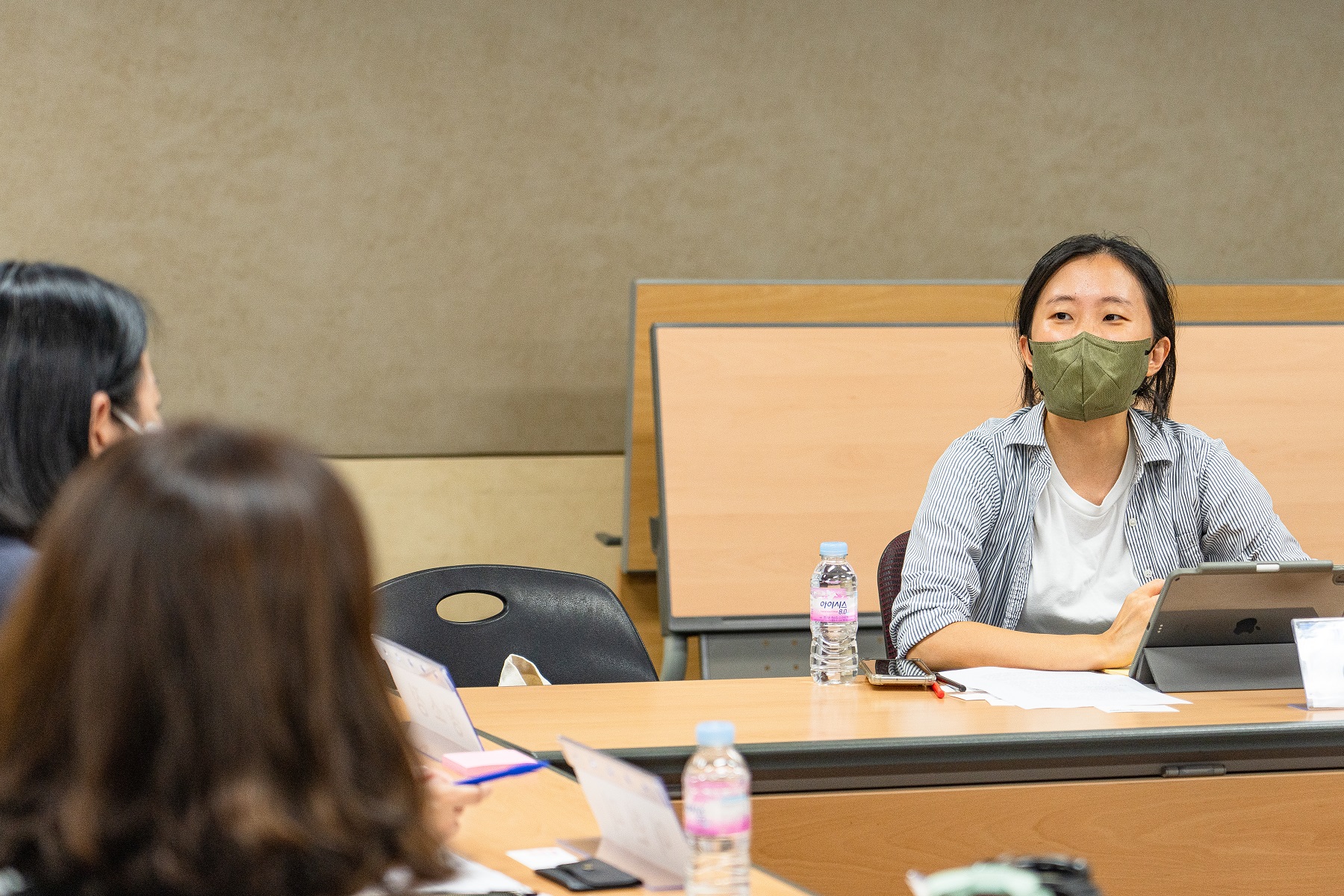
Lee Jaeim
When I worked with a team of researchers led by professor Jung Jin-seong at Seoul National University, I had an exhibition titled “Records Memories: Stories of “Comfort Women”, Untold Words“. It consisted of a total of 4 sections, and one of them was about Lee Bok-soon, who had lived on Truk Island in the Pacific Ocean. She said, “I lived on Dorakudo” since reporting her “Comfort Women” experience to the government in 1993. At the time, I simply thought “as she said it was warm and people ate bananas, Dorakudo must have been Indonesia”. Later, however, I realized that “Doraku” is the Japanese pronunciation of Truk, and that Lee Bok-soon meant to say she had been to Truk Island. It took a lot of cross examination to figure that out.
Looking at the exhibition poster, the letters between “records” and ”memories” are being broken. As memories and records intersect, the poster expresses the attempts to hear the stories we haven't heard yet about “Comfort Women”. I think it is possible to create a rich story by removing the hierarchy of data and viewing the data altogether. I think that the essential attitude of a researcher is to look at the “production context”, whether it is testimonies or data.
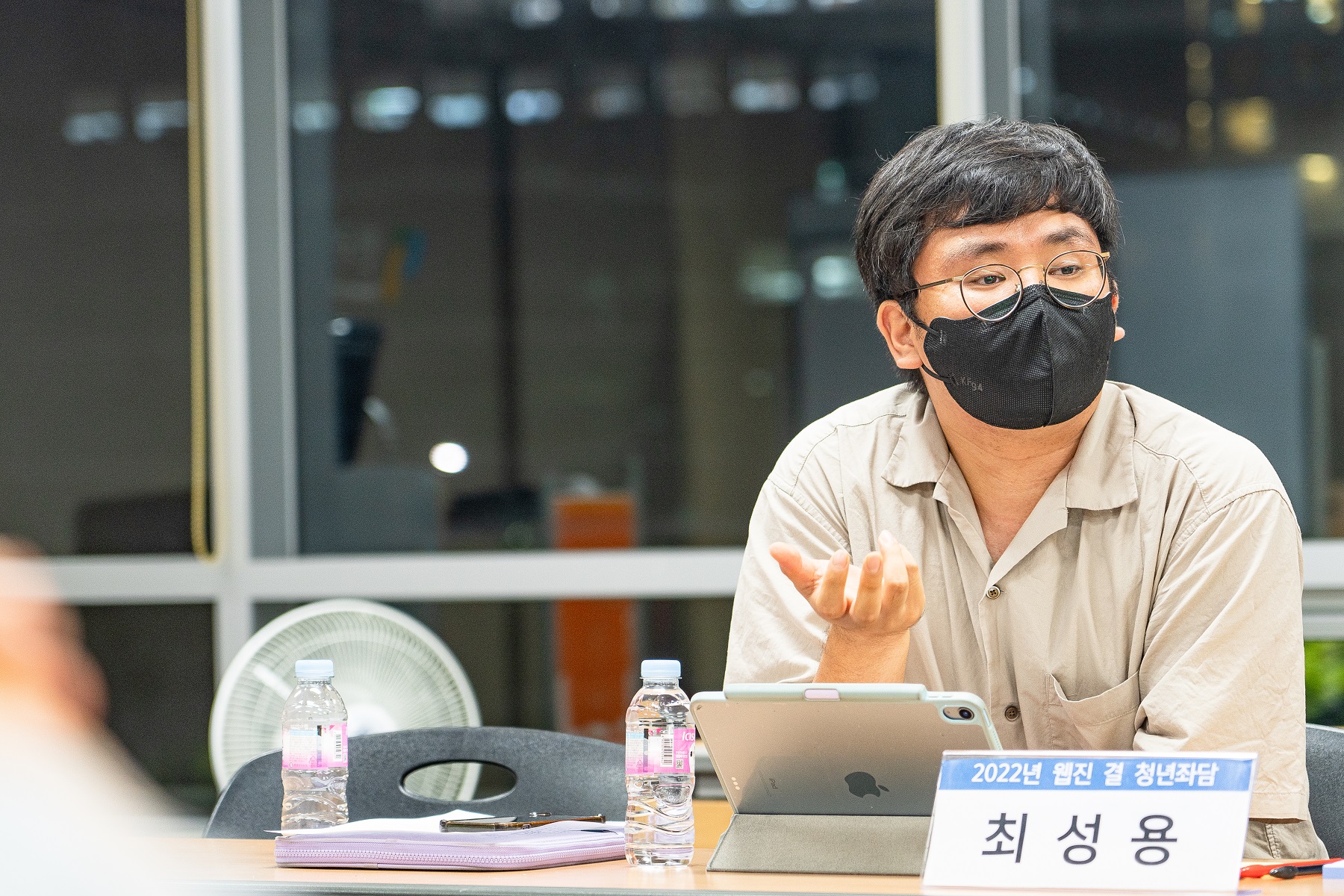
Choi Sung Yong
I would like to talk about two things regarding testimony. One is about positionality. When I interviewed the elderly victims with the research team, I tended to listen behind the interviewers. By doing so, I thought about what positionality is. This is also connected to the importance on the context of production. It is important to read testimonies through affect, silence, senses, and subtle atmosphere, but even before that, we should start by reading the context in depth. Like testimony, the historical materials are very constructive. As the power on a structural level and the intent and desire of the individuals involved are intertwined, the historical materials are created. As I study, I keep asking myself if I will be able to examine these multi-layered contexts.
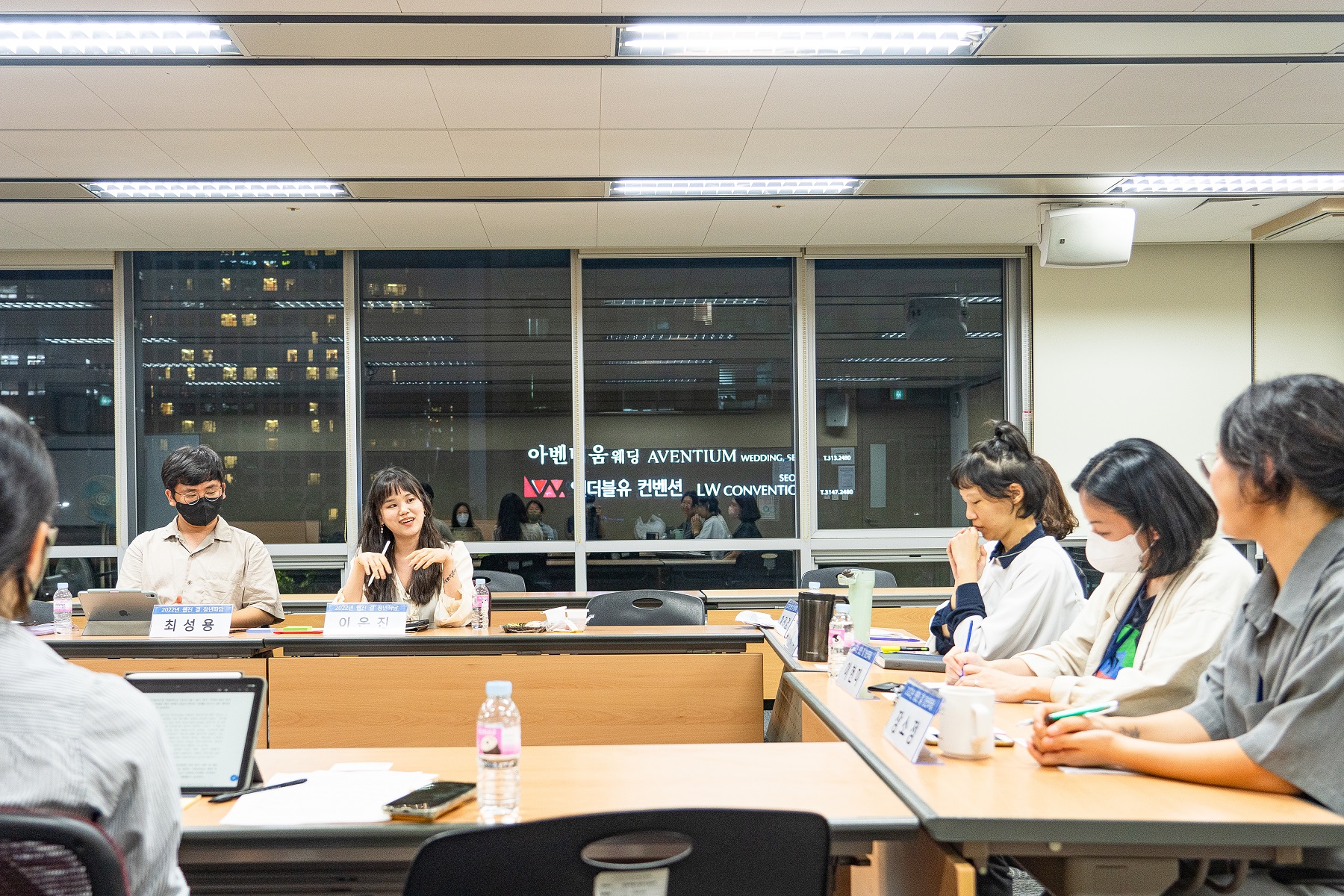
*You may read the full version of <Conversation with Young Scholars 2: Expanding the Field of Struggle for the Japanese Military ‘Comfort Women’> in Korean edition of webzine Kyeol.
Expanding the Field of Struggle for the Japanese Military ‘Comfort Women’ <Part 1> - Clashing Difference
https://kyeol.kr/en/node/484
Expanding the Field of Struggle for the Japanese Military ‘Comfort Women’ <Part 2> - Clashing Memories: Collection, Discovery, Selection & Arrangement
https://kyeol.kr/en/node/485
Expanding the Field of Struggle for the Japanese Military ‘Comfort Women’ <Part 3> -Choosing Differently
https://kyeol.kr/en/node/486
- ^ Choi Sung Yong, 2020, 「The Multi-layered Nature of “the Controversy over Korean Council for Justice and Remembrance” and the Questions of the Movement」, “Yellow Sea Culture”, Winter 2020 (Volume No. 109), Saeul Foundation of Culture.
- ^ Cho Kyung Hee, 2020, 「(Re)summon of Post-Colonial Feminism: The “Comfort Women” Movement and Identity Politics of Zainichi Korean Women in the 1990s」,
Related contents
-
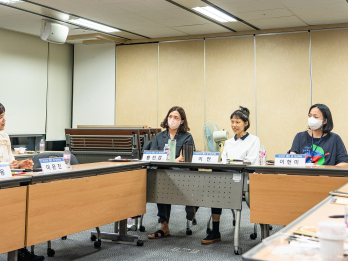
- 일본군‘위안부’ 투쟁 영역의 확장 〈2부〉 - 부딪치는 기억들: 채록·발굴·선택·배치
-
두 번째 청년좌담에서는 젊은 연구자이자 활동가인 이은진, 이재임, 최성용과 만나 이들의 삶에서 일본군‘위안부’문제가 어떤 의미와 동인이 되고 있는지 물었습니다.
-
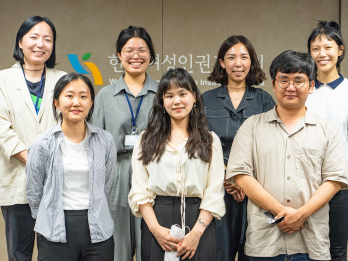
- 일본군‘위안부’ 투쟁 영역의 확장 〈3부〉 - 다르게 선택하기
-
두 번째 청년좌담에서는 젊은 연구자이자 활동가인 이은진, 이재임, 최성용과 만나 이들의 삶에서 일본군‘위안부’문제가 어떤 의미와 동인이 되고 있는지 물었습니다.
-
Writer
Editorial Team of Webzine
-
Editorial Team of Webzine <Kyeol>